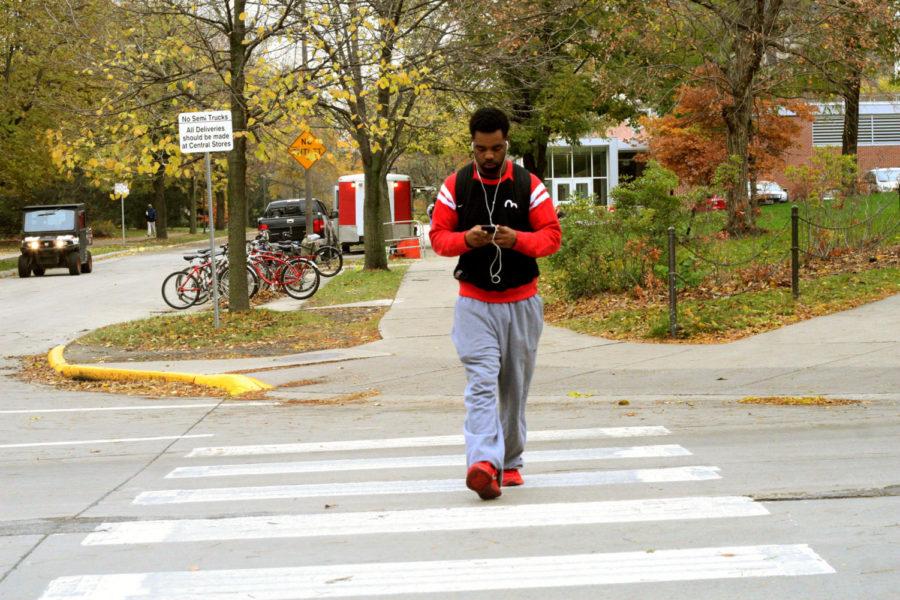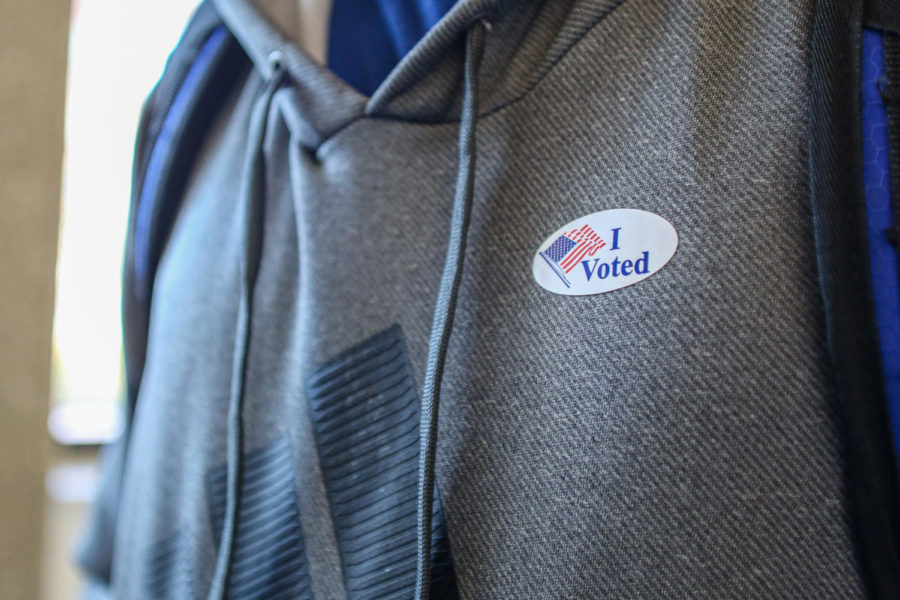Finn: Dangers of technology: Cellphones distract us from real threats to safety
Photo Illustration: Azwan Azhar/ Iowa State Daily
According to columnist Finn, having the need to be constantly connected to the digital world can be dangerous to our well-being. Take some time to disconnect and actively observe your surroundings to be more aware of surroundings and potential threats.
November 6, 2013
Justin Valdez, 20, was shot in the back of the head on a San Francisco train in September of this year. It was a heartless, random act of violence, but the most tragic part about the September shooting was that it could have been prevented.
According to the security tapes, the 30-year-old shooter, Nikhom Thephakysone, blatantly pointed the gun across the aisle of the train, and for a moment even scratched his nose with the hand that held the weapon. District Attorney George Gascon said in an interview with NBC: “These weren’t concealed movements — the gun was very clear.”
The next question that everyone seems to be asking is how such an obvious display of a deadly weapon goes unnoticed by a train car full of people. Maybe I am being naive but I like to think that if I was sitting mere feet from a deranged man with a deadly weapon I would realize it. No one did, however, because according to surveillance footage the passengers were too engrossed with their cellphones.
This murder is about more than the mental health of America, or gun restrictions, this case is about the relationship many have with their cell phones. We have become a society so addicted to our electronics that we don’t notice a gun being waved in our faces.
According to Ed Tech Magazine, this year there will be more mobile device connections then there are people, and 87 percent of American adults will own cell phones. Statistics like this prove that electronics are becoming more than a simple convenience, they are becoming an increasingly vital part of our lives.
Gone are the days when all you could depend on your phone for was to make a call. Now our phones are practically used in almost every aspect of our daily lives. They wake us up in the mornings, help us monitor the food we put in our bodies, and the number of steps we take a day. They are our credit cards, our calendars, our connection with those far away, and our source of much entertainment.
But is this a good thing?
In the same survey earlier mentioned, it was reported that 84 percent of American adults said they could not go a single day without their cellphones. Our dependence on these electronic devices is becoming an addiction, one that proves to have grave consequences. As displayed on the San Francisco train, cellphone use impacts our ability to be active observers, and to take note of our surroundings. We become oblivious to what is going on around us, which in many cases is a dangerous thing.
Next time you walk through campus I challenge you to count how many times you see someone walking while texting (which I will admit is an impressive skill) and almost get taken out by a biker, or even a bus. We are glued to our cellphones so much that we can’t even take the time to occasionally look up, or check the street before crossing. Although these examples do not have nearly the same tragic outcome as the Valdez murder case, they are vital in proving the point that that we need to unplug.
Many people tend to forget that the age of technology we all live in is a relatively new age, and that before the smart phones and tablets people were still able to function and have healthy social lives. The Facebook updates, emails and text messages can wait. We need to scale back our use of mobile devices and take more time to look around and observe our surroundings.
Let’s take the initiative to let go of our addiction, and become more active members of society. Let’s challenge ourselves to become less involved in the virtual world, and more involved in the reality that is all around us. If we can accomplish that, then tragedies like the San Francisco train shooting can be prevented.







